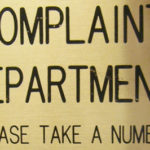Sometime back, I heard, "The Holy Spirit is the ethicist of the Trinity." If this is not blasphemous, is it true?
If a complete, detailed, accurate description of God could be captured in human language, then this God would not be worthy of our worship. Human words, however eloquent or precise, are inadequate to contain the majesty of the Creator, Redeemer and Sustainer of life. So, we use analogy and metaphor in our feeble attempts to define God. "Trinity" itself is not a Bible word. It is an attempt by theologians and faithful believers to conceptualize God who is described in Scripture as Father, Son and Spirit.
According to Scripture, the Spirit of God works in numerous ways. God's Spirit is Creator (Genesis 1:2), Giver of prophecy (Joel 2:28-29), Helper (John 14:16), Liberator (2 Corinthians 3:17) and Missionary (Acts 13:2, 4). These are ways Bible writers were inspired to think about the work of God's Spirit in daily life. Two other analogies attempt to describe the ethical work of the Spirit—the Holy Spirit is our Teacher (John 14:17, 26) and our Judge (Acts 10:44-48).
None of us is born with fully formed convictions about right and wrong, truth and error, good and evil. We learn these over time, and our teachers are our parents, siblings, peers, culture, ministers and educators. Each of these influences us in positive or negative, wholesome or perverse directions. Behind and beyond these instructors, God is nudging us toward holiness. When we read the Bible and attempt to absorb its teachings into our lifestyle, it is the Holy Spirit who teaches us what to say and how to act. We either welcome or reject this Teacher who prompts us along right paths.
The Holy Spirit also is Judge. God convicts us when we err. When you and I experience pangs of regret over some careless action, or when we recognize a missed opportunity to do good, it is the Spirit of God who supplies the careful reminder of our commission or omission.
Few of Jesus' earliest followers considered it their duty to speak the gospel to Gentiles. It began as an infant movement within Judaism, not a message to all nations. It might have remained a small sect without Peter, who was convicted by the voice of God's Spirit to knock on the door of Cornelius and allow the gospel to leap over this racial barrier. Wherever Christians manage to set aside their racial, ethnic, gender, political or theological differences to fulfill the larger purposes of worship, evangelism and fellowship, the Holy Spirit has gone ahead to convict them of our unity in Christ.
An ethicist is a teacher who studies the ethical canons of human history, makes them come alive by writing and instruction, considers how they may be applied in the vexing issues that confront society, and invites people to become more sensitive moral beings. In no way is it blasphemy to describe our Teacher and Judge as God's ethicist.
Mike Clingenpeel, pastor
River Road Church, Baptist, Richmond, Va.
Sign up for our weekly edition and get all our headlines in your inbox on Thursdays
?Right or Wrong? is sponsored by the T.B. Maston Chair of Christian Ethics at Hardin-Simmons University's Logsdon School of Theology. Send your questions about how to apply your faith to [email protected].














We seek to connect God’s story and God’s people around the world. To learn more about God’s story, click here.
Send comments and feedback to Eric Black, our editor. For comments to be published, please specify “letter to the editor.” Maximum length for publication is 300 words.